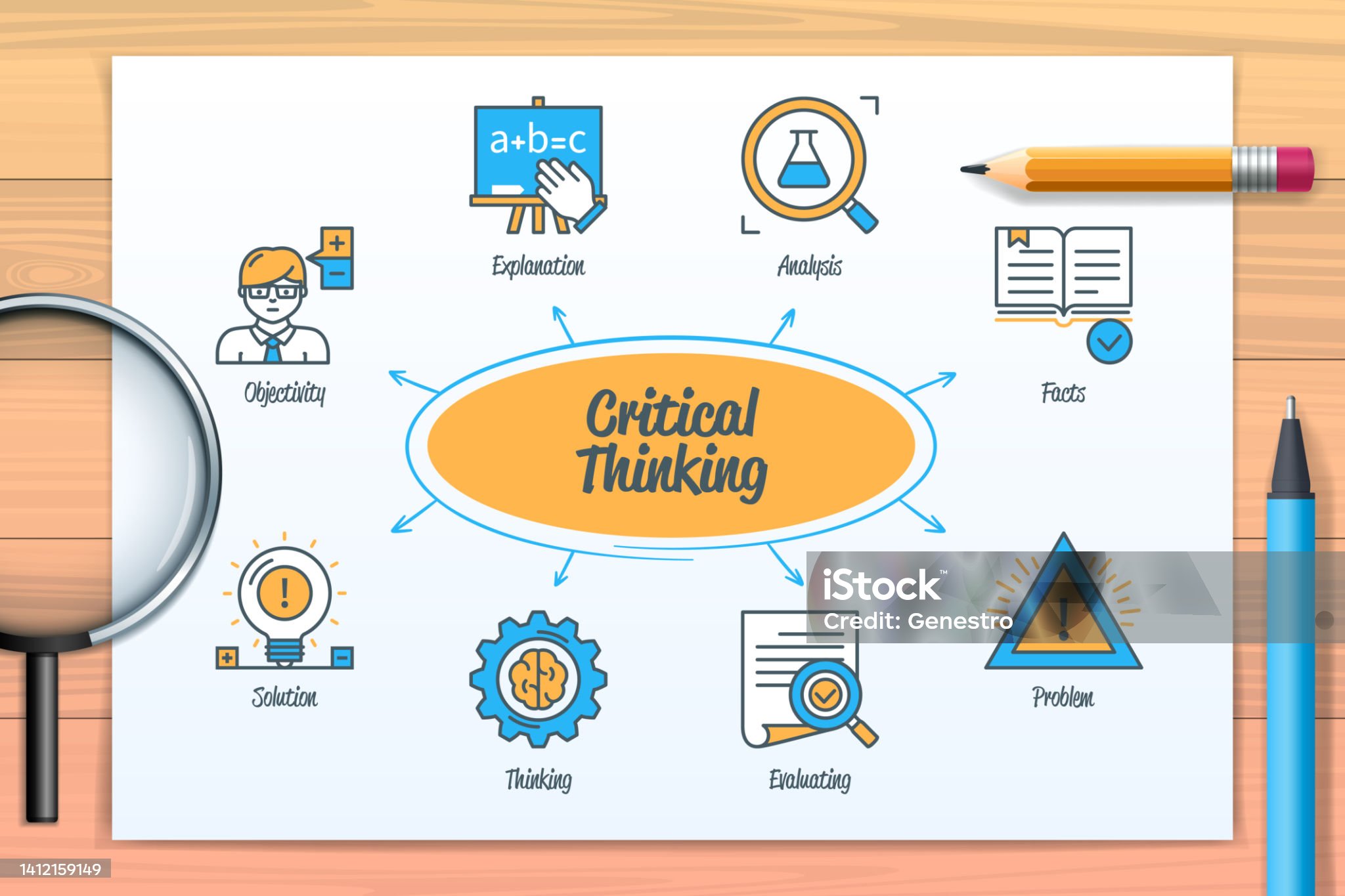Here’s a brief timeline of key contributors to the development of critical thinking:
Ancient Foundations
- Socrates: Introduced dialectical questioning to challenge ideas and uncover contradictions.
- Plato and Aristotle: Expanded on Socratic ideas, emphasizing logic, reasoning, and empirical observation.
Medieval and Renaissance Thinkers
- Thomas Aquinas: Applied critical reasoning to theology and philosophy.
- Francis Bacon: Advocated for empirical methods and inductive reasoning in science.
- René Descartes: Emphasized doubt and systematic reasoning (“Cogito, ergo sum”).
Modern Development
- John Dewey (1859–1952): Often considered the father of modern critical thinking. He promoted reflective thinking in education and a democratic society.
- Richard Paul and Linda Elder (late 20th century): Developed frameworks and standards for teaching and assessing critical thinking.
The Socratic method is a form of cooperative dialogue that uses questioning to stimulate critical thinking, expose contradictions, and clarify ideas. It was developed by Socrates, the classical Greek philosopher, and remains a foundational technique in philosophy and education.
🔍 Core Principles of the Socratic Method
-
Systematic Questioning
Instead of giving answers, Socrates asked probing questions to challenge assumptions and encourage deeper reflection. -
Elenchus (Refutation)
Through dialogue, the interlocutor’s beliefs are tested. If contradictions are found, the assumption is refuted, prompting reconsideration. -
Dialectical Process
The conversation unfolds as a back-and-forth exchange, refining ideas through logical reasoning and mutual inquiry. -
Focus on Definitions and Concepts
Socrates often asked for definitions (e.g., “What is justice?”) and then examined them critically to reveal inconsistencies or vagueness. -
Intellectual Humility
Socrates claimed to know nothing, modeling a mindset of openness and curiosity rather than dogmatism.
🧠 Example of the Socratic Method in Action
Let’s say someone claims, “Courage is standing up to danger.”
Socrates might respond:
- “Is someone who runs into danger without thinking courageous?”
- “Can courage exist without wisdom?”
- “Is a criminal who defies the Law courageous?”
These questions aim to refine the definition and uncover more profound truths.
📚 Modern Applications
- Education: Teachers use it to promote critical thinking and active learning.
- Law: Lawyers and judges use it to test arguments and expose flaws.
- Therapy: Cognitive-behavioral therapy uses Socratic questioning to challenge irrational beliefs.
Here’s an example of the Socratic method applied to economics, specifically around the topic of minimum wage:
💬 Statement:
“Raising the minimum wage always helps low-income workers.”
🧠 Socratic Questions:
- Clarification:
“What do you mean by ‘helps? Are you referring to income, employment, or overall well-being?” - Assumption Challenge:
“Are you assuming that employers will not reduce hiring or hours in response to higher wages?” - Evidence Inquiry:
“Can you point to data or studies that show consistent positive outcomes from minimum wage increases?” - Alternative Perspectives:
“How might small businesses be affected differently from large corporations?” - Consequences Exploration:
“What could happen to prices, automation, or job availability if wages are raised significantly?” - Counterexamples:
“Are there cases where raising the minimum wage led to job losses or increased unemployment?”
🎯 Outcome:
Through this questioning, the person is encouraged to:
- Define their terms more precisely.
- Examine underlying assumptions.
- Consider broader economic impacts.
- Explore empirical evidence.
- Reflect on unintended consequences.
This process doesn’t aim to “win” an argument—it’s about deepening understanding and refining beliefs.
Here’s an example of the Socratic method applied to the topic of inflation:
💬 Statement:
“Inflation is always caused by printing too much money.”
🎯 Learning Outcome:
- Inflation is a complex phenomenon.
- It can have both positive and negative effects depending on context.
- Understanding inflation requires examining causes, consequences, and policy responses.
